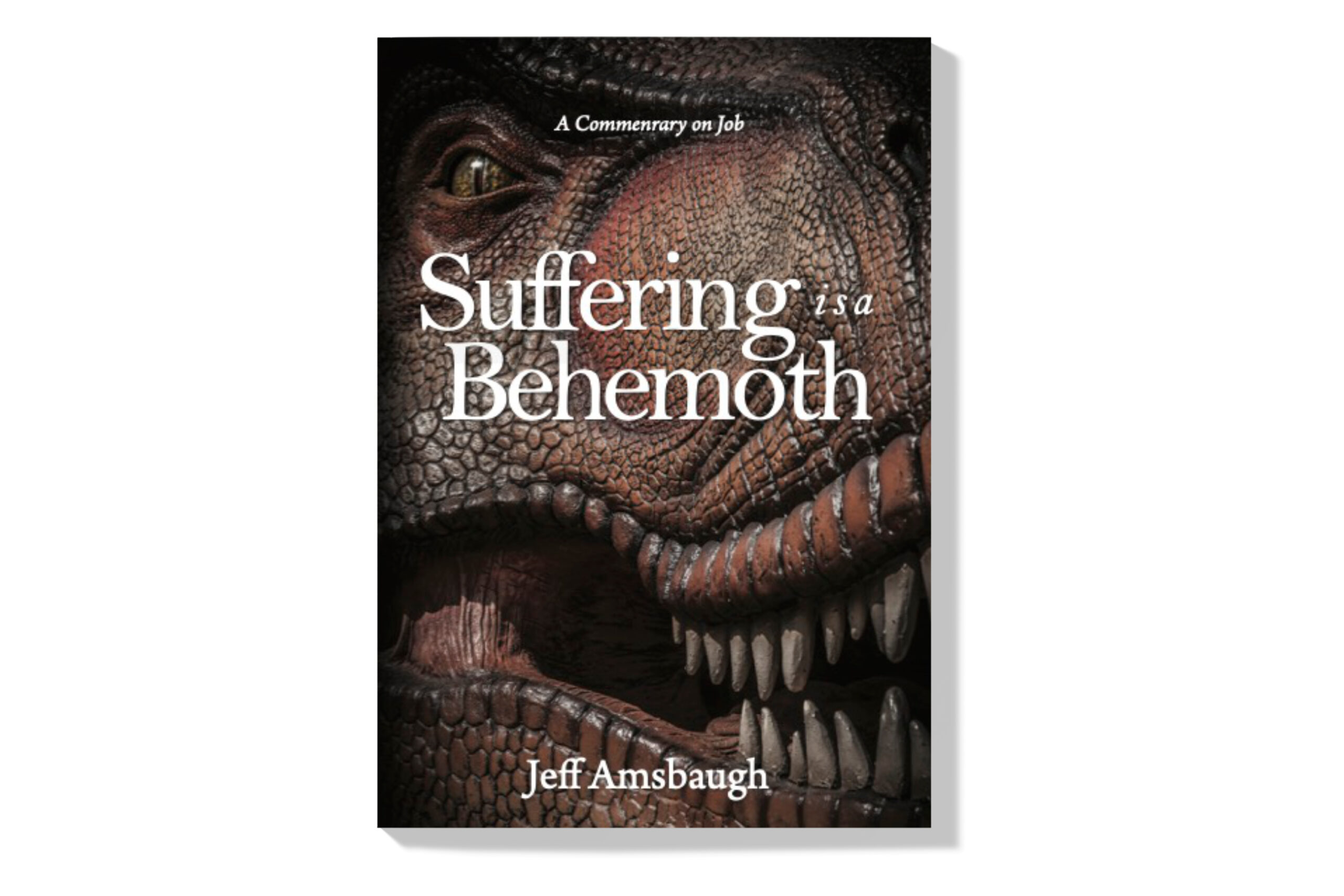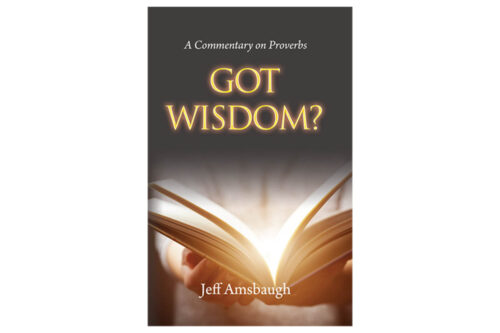-
Esther lived in a materialistic society that was filled with antisemitic people who thought more of their personal advancement than the people of God who lived among them. In a day when women were treated as property, and Jews were thought worthy of extermination, God brought Esther to the throne for such a time as this. Through the help of Mordecai, the prayers of her fellow Israelites, and more importantly, through the invisible, providential hand of God, the tables were completely turned, and the Jews were protected while their enemies were destroyed. Thus, the book of Esther highlights the miraculous, protective intervention of God. Though the Lord is never mentioned in the book, He is present on every page. God is often most involved when His presence is not seen. The God of Esther can also help us in uncertain times by manifesting His presence through the lives of obscure volunteers for such a time as this.
-
Job’s belief in the sovereignty of God did not allow him the luxury of attributing his successive and severe calamities to secondary sources. It never occurred to him to blame natural disasters, human agents, or even the devil for his suffering. The Lord had given, and the Lord had taken away. Why did God grant the devil permission to afflict Job so severely seeing Job lived so righteously? Job seeks answers, and those provided by his friends are wholly inadequate. When God finally arrives on the scene, He does so, not to answer questions, but to question answers. For example, God asks Job, “Where were you when I made behemoth?” The behemoth, a massive land animal, serves no apparent reason for existence. And if a man tries to get ahold of it in order to analyze it, he only ends up injuring himself. The point is that suffering is a behemoth. We often don’t know why God allows it, and if we attempt to understand it more fully, we only end up injuring ourselves. We trust that this commentary will assist you in trusting God even when His ways are inexplicable.
-
Jeremiah was nearly twenty years old when he began his ministry in 627 BC and immediately began to address a nation that was rapidly approaching the judgment of God. Because Jeremiah prophesied in the final years of Judah before the Babylonian exile, his overwhelming theme is judgment. Indeed, the first forty-five chapters of the book focus on God’s judgment of Judah. Ironical- ly, however, there is an element of grace throughout the book, and significantly, Jeremiah’s prophesy provides the most vivid treatment of the New Covenant whereby God will remember Judah’s sins and iniquities no more. Indeed, God was pulling down in order to build. We trust that this commentary on Jeremiah will help you accept the grace of God even when life is falling apart.
-
God promised Joshua that the entire land of Canaan was available, but he and the Israelites must go forward and possess their possessions. Sadly, in the New Testament era, Christians many times allow the promises of God to be nothing more than unclaimed freight. Paul, in the book of Ephesians, outlines for us the glorious inheritance that we have in Christ and then encourages us to advance and claim it. May this study in Ephesians incentivize you to possess your possessions.
-
Many have seen a parallel between the five books of the Psalter and the five books of the Pentateuch. Indeed, the first book of the Psalter (Psalms 1-41), which mirrors the book of Genesis, speaks graphi- cally of the heavens that declare the glory of God and also of man’s ruination of the created environ- ment through his fall into sin. Many hymns, such as “How Great Thou Art,” speak of God’s excellence that can be observed in the created order. This is very much in keeping with God’s inspired hymn- book where you and I are invited to sing about the mighty power of God.
-
Many believe that the book of Ecclesiastes is a pessimistic discourse, but it is truly a powerful apologetic for a God-honoring life. After Solomon tries everything without God, he is left with nothing but vanity. Such is the always the case when life is lived under the sun. No matter how attractive the hedonistic life may appear, such pursuits are a mere chasing of the wind – the acquisition of soap bubbles. When Solomon, however, fears God and keeps His commandments, wholeness returns. Hopefully this study of Ecclesiastes will encourage you to live a substantive life of dedication to God rather than a hollow existence of soap bubbles without Him.
-
Many people love proverbs from whatever the source because they provide memorable advice in a short, pithy fashion. The book of Proverbs in Scripture, however, is not just good advice from wise people; it is infallible advice from the all-wise God. Proverbs provide the instruction that is necessary to live life wisely and godly. Numerous leaders have found success by reading, studying, and applying the truths from this book of the Bible. What about you? Got Wisdom? We trust that as a result of studying the Proverbs through this commentary you will become a wise guy in the best sense of that term.
-
Many believe that the major theme of Romans is justification by faith. This assumption, however, does not provide an occasion for the letter, forces the climax of Romans to be reached in chapter four, and diminishes chapters nine through eleven to a mere parenthesis in the epistle. While it is true that justification is by faith alone, Paul presents this truth as part of something bigger. All men are equally condemned, justified, sanctified, planned, and needed. Therefore, all men should be received regardless of their cultural, social, or economic background. Indeed, the Gospel has ramifications. It is not merely for the Jew. It is also for the Greek.
-
Often we feel that a powerful apologetic is necessary to confront false religions and that courses in comparative religion are vital to evangelizing those from different faiths. When Paul, however, sought to rescue the Colossians from the Gnostic heresy that was pervading their town, he simply chose to exalt Christ. When Jesus is seen in all His glory, other faiths of necessity fade into the background. No competing system of thought can adequately replace the splendor of Jesus. Nothing can trump Christianity when Christ is in all things preeminent. We trust that this study of Colossians will help you see Jesus in all of His magnificence.
-
Because many have recoiled from the fact that God would write a book about human sexuality, the Song of Solomon has often been allegorized as a book written to describe Christ’s love for the church. Does this mean that the book had to lay dormant for 900 years until the church was birthed? And how are we to explain God using Solomon, one of the worst husbands in history, to typify God’s love? Why is it that many who abhor allegorical interpretation are willing to accept it with regard to this Biblical work? In this commentary, we will discover that the Song needs no alteration or “deeper significance” to justify its place in the canon. To the contrary, this book will defend the fact that the proper use of human sexuality can turn a shepherd into a prince while its misuse can turn the world’s most celebrated sovereign into a beast. Indeed, God wrote the book of love.
-
Isaiah ends his great prophecy by telling us about a new heaven and new earth. He does not leave us in the dark, however, about how this new universe will come to be. The entire focus of the book is on the Messiah, Jesus Christ. The prophet tells us of Christ’s birth, Christ’s cross, and Christ’s return. Jesus is the Servant of the Lord who accomplishes the very salvation of God. Indeed, He is God’s salvation. And it is no halfway salvation. It is salvation that helps us in this life and in the life to come. Those who embrace Christ are saved to the uttermost. We trust that you will arrive at a greater appreciation of this great salvation through this study of Isaiah
-
Life is filled with dreams. Someone has once said that we will never accomplish more than we are willing to dream. There is no denying that Daniel was a dreamer and was interested in helping fulfill the dreams of others. This commentary takes you through the historical and prophetic sections of Daniel, a significant Old Testament work. It is our hope that as a result of this study you will not be afraid to dream the impossible and trust God for the unforeseeable. No true student of eschatology can rightly understand the future without a working knowledge of the book of Daniel. It is our prayer that this commentary will aid your prophetic understanding of God’s Word.












